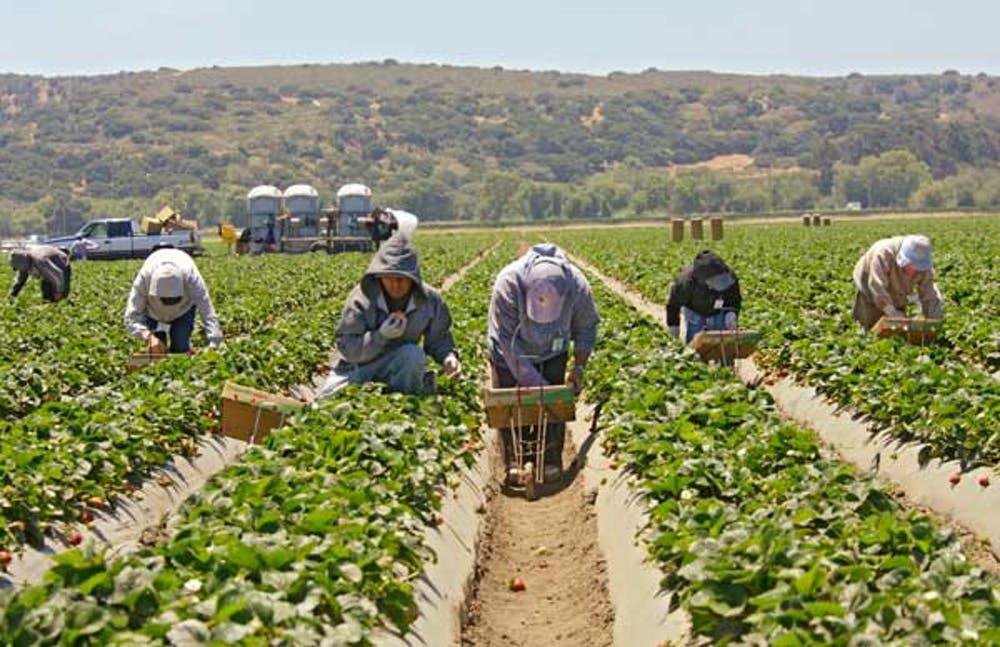The Devil’s Fruit
Once you read Fruit of the Devil, by Mary Flodin, you’ll never eat strawberries again, unless they are organic. Here’s what Ms Flodin has to say about her 659-page novel:
Ms. Aurora Bourne would do anything to protect her students from harm … even if that means going up against the most powerful corporation on the planet.
While getting her classroom ready for Fall, Aurora feels sick, and it’s more than back-to-school-blues. Strawberry fields nearby have just been fumigated and pesticides are drifting into the classrooms. Soon, a spate of serious health issues crop-up in children and adults around the school. Then the teenage sister of a migrant student goes missing from the strawberry fields, and Aurora realizes that pesticides aren’t the only threat to her students’ safety. She begins to understand why the farmworkers call strawberries Fruta del Diablo — the Fruit of the Devil.
Aurora starts asking questions and gets caught in a web of gangs, drugs, trafficking, and high-level corporate crime. When a Catholic priest comes to her aid, she falls in love with him, complicating her life further. She has no idea he’s actually an ancient nature god out of Pacific Coast indigenous legends.
I must say, reading Fruit of the Devil is an eye-opener. I taught elementary school for almost three decades and know the classroom setting and characters were spot on, especially the power invested in the principal. Aurora’s new boss, Deana Wagner, uses her office not for the betterment of her students and teachers, but for her own political advantages.
You’ll also learn about the agricultural industry in California and the misuse of migrant workers and their families. How corporations are owned by larger businesses like Bio-Genesis Agrochem that promotes pesticides like methyl bromide. Even though the toxic chemical was banned in the 1987 Montreal Protocol because it depleted the ozone layer. If humans are exposed to the pesticide, the substance can cause central nervous system and respiratory system failures harming the lungs, eyes, and skin.
Even though the chemical is banned, powerful companies like Bio-Genesis can obtain wavers. Wavers are granted and workers, and people living or working near the fumigation site can become poisoned. Aurora and her fellow teachers at Prudenciana Elementary School in Valle Verde, California try to do something about it when students and teachers are sickened, but find obstacles thrown in their way by their new principal and the superintendent of schools.
Fruit of the Devil is a mystery wrapped into a love story between a fourth-grade teacher and a Catholic priest. Both Aurora and Father Francis are concerned about the recent killing of a child, and the health of their community. They are pulled together in their efforts to stop the fumigations as well as their concern for the physical health of the California Central Coast.
Flodin does a remarkable job developing an exciting plot with crisp, clear descriptions that make you feel you are actually on the scene. The characters are fleshed out perfectly in a 1990s setting. The author’s research is in depth, filling readers in on the problems of farm workers, the politics of fumigation, homelessness, and modern-day slavery.
The novel had a few problems. First, it was way too long for my tastes, but the author kept me coming back for more with her excellent writing style. However, I felt a good editor could have shortened the novel by a few hundred pages by eliminating scenes I thought unnecessary. For example, Aurora and Father Francis have an affair, but not in the real world. Flodin creates an alternate universe where the characters escape to have their love relationship, not remembering anything in the real world. If that entire scenario was cut, it wouldn’t change an otherwise well-crafted and fascinating novel.

About the Author:
Mary Flodin taught environmental education, English, and art in California public schools. She is a member of Mystery Writers of America, the Silicon Valley chapter of Romance Writers of America, Sisters in Crime, and Santa Cruz Women of Mystery. She was awarded a fellowship to the Squaw Valley Community of Writers, and Fruit of the Devil, her debut novel, was a finalist for the PEN/Wellwether Award for Socially Engaged Fiction.




Now I have to buy only organic fruits and vegetables.